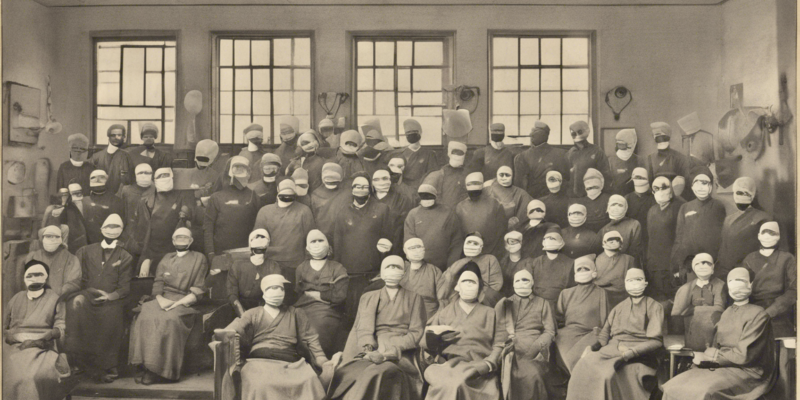Class 10 in the medical world is a crucial milestone for aspiring surgeons. It marks the beginning of the transition from being a medical student to a surgical trainee. This phase is characterized by a significant increase in hands-on surgical experience, responsibility, and decision-making opportunities. In this article, we will explore the triumphs and challenges associated with Class 10 in surgical training, focusing on key aspects such as clinical experience, skills development, challenges faced, and the road ahead for budding surgeons.
Clinical Experience and Skills Development
Clinical Exposure: Class 10 is a pivotal year for surgical trainees as they move from observing surgeries to actively participating in them. This hands-on experience allows them to apply theoretical knowledge to real-life scenarios, honing their surgical skills and decision-making abilities.
Operating Room Skills: During Class 10, trainees gain proficiency in basic surgical techniques such as suturing, knot tying, and tissue handling. They also learn how to assist in more complex procedures, gaining exposure to a wide range of surgical specialties.
Patient Interaction: Interacting with patients becomes a core component of surgical training in Class 10. Trainees learn how to conduct thorough pre-operative assessments, obtain informed consent, and communicate effectively with patients and their families.
Teamwork and Leadership: Operating room dynamics play a significant role in Class 10, teaching trainees the importance of teamwork, communication, and leadership. They learn to collaborate with an interdisciplinary team of surgeons, nurses, and anesthesiologists to ensure optimal patient care.
Challenges Faced in Class 10
Work-Life Balance: Balancing long hours in the hospital with personal life can be challenging for surgical trainees in Class 10. The demanding nature of surgical training requires dedication and sacrifice, often leading to burnout if not managed effectively.
Complex Cases: Class 10 exposes trainees to complex surgical cases that may push their knowledge and skills to the limit. Managing high-risk procedures, complications, and critically ill patients can be daunting but essential for their growth as surgeons.
Feedback and Evaluation: Receiving constructive feedback and undergoing regular evaluations are integral to the learning process in Class 10. Trainees must be open to criticism, willing to learn from their mistakes, and strive for continuous improvement.
Uncertainty and Pressure: The transition from being a medical student to a surgical trainee can be overwhelming, leading to feelings of uncertainty and self-doubt. Coping with the pressure to excel, make critical decisions, and perform under challenging circumstances is a common struggle in Class 10.
The Road Ahead for Budding Surgeons
Specialty Exploration: Class 10 offers trainees the opportunity to explore different surgical specialties and subspecialties. It is the ideal time to identify their areas of interest, strengths, and career goals, laying the foundation for future specialization.
Research and Publications: Engaging in research projects and academic publications is vital for the professional growth of surgical trainees in Class 10. It not only expands their knowledge but also enhances their credibility as future academic surgeons.
Continuing Education: Lifelong learning is essential for staying updated with the latest advancements in surgery. Class 10 serves as a stepping stone for trainees to pursue further education, attend conferences, workshops, and training programs to enhance their skills and stay competitive in the field.
Mentorship and Networking: Building strong relationships with experienced mentors and peers is invaluable in Class 10. Mentorship provides guidance, support, and opportunities for career advancement, while networking opens doors to collaborations, job prospects, and professional development.
Work-Life Integration: Achieving a healthy work-life balance is crucial for the long-term well-being of surgeons. Class 10 teaches trainees the importance of self-care, time management, and setting boundaries to prevent burnout and maintain a fulfilling personal and professional life.
Frequently Asked Questions (FAQs)
- **What is the significance of Class 10 in surgical training?
-
Class 10 marks the transition from observer to active participant in surgeries, offering hands-on experience and skill development opportunities.
-
**How can surgical trainees cope with the demanding nature of Class 10?
-
Trainees can cope by prioritizing self-care, seeking support from mentors and peers, and maintaining a healthy work-life balance.
-
**What are some key skills that surgical trainees develop in Class 10?
-
Surgical trainees in Class 10 develop skills in basic surgical techniques, patient interaction, teamwork, leadership, and critical decision-making.
-
**How can surgical trainees leverage Class 10 for future career growth?
-
Trainees can leverage Class 10 by exploring specialties, engaging in research, continuing education, mentorship, networking, and promoting work-life integration.
-
**What are some common challenges faced by surgical trainees in Class 10?
- Challenges in Class 10 include work-life balance, complex cases, feedback and evaluation, uncertainty, pressure, and the transition from medical student to surgical trainee.

